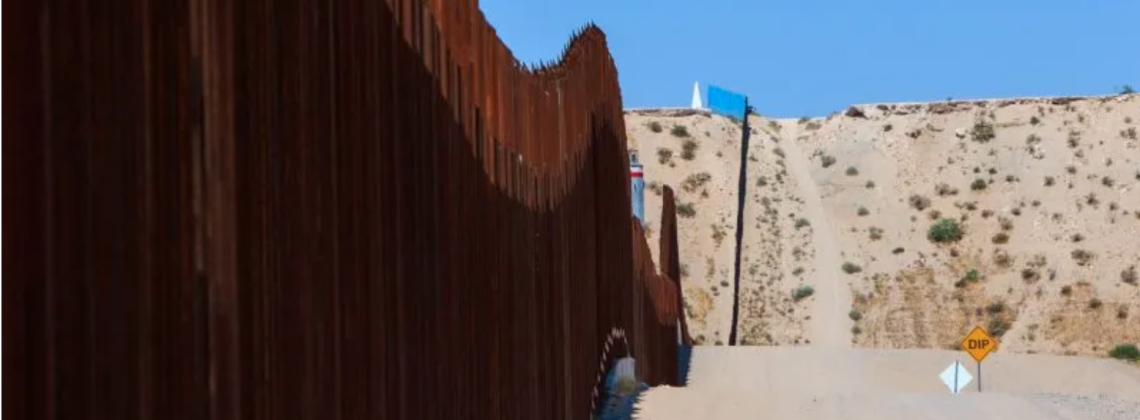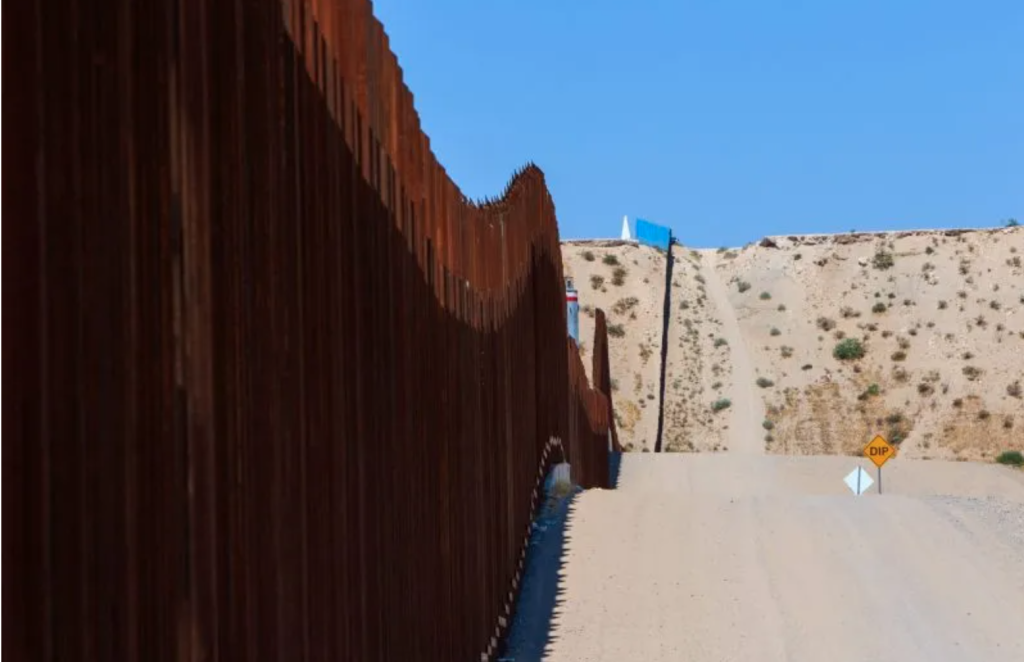

Democrats need an immigration policy. Now.
In polite society today political ideology sometimes seems less a matter of what side you’re on than whether or not you’re willing to engage an issue in the first place.
Take, for example, the politics of abortion. Ever since the Dobbs vs. Jackson Women’s Health Organization last year, reproductive rights have been an issue the left has been eager to engage, since it has proven to be an electoral winner. The right, by contrast, has become a good deal more diffident in talking about it, except among evangelicals. (In theory, this need not be so: An atheist could make an argument against abortion as a matter of human rights.)
In conservative media it’s not hard to find the latest outrage of a biologically male athlete who has grotesquely dominated the female competition; meanwhile, progressives showcase pending state laws against transgender people. Black lives, Blue lives, Jewish lives: Each has had partisans eager to take up demographic causes (sometimes they seem like cudgels), while for others, such causes have been less a matter of avowed opposition than discreetly avoiding the subject. It’s become a truism that MSNBC (“Donald Trump!”) and FOX (“Hunter Biden!”) inhabit different worlds, each as notable for their silences as their blaring chyrons.
Meanwhile, a subterranean current flows that has not, and will not, go away: the politics of border security. Remember that this is the issue Donald Trump rode on an escalator to power in 2015. Eight years later, in one of his footsie flirtations with fascism, Trump declared his willingness to be dictator for a day at the start of a second term in order to close the border. That’s how he decided to spend political capital, even as Tucker Carlson was trying to bat down apprehensions that he would subvert the Constitution.
Trump did this because he knows the potency of the issue. Much of the way he talks about immigration is problematic or just plain wrong, at least in terms of the way he plans to approach it: with mass arrests, detention camps, and travel bans, all of which would be challenged in courts. But ignoring the problem or simply decrying Trump’s approach will only make it worse. Which is what Democrats seem most interested in doing.
There are two facets of the immigration issue: economic and cultural. Once upon a time there was a lively debate about whether immigration suppressed working-class wages. That discourse, though not resolved, has disappeared. This is particularly notable given that the hallmark issue of the progressive imagination is inequality. Bourgeois Americans benefit from undocumented immigration in multiple ways—lower prices, cheaper household labor, and the like. They seem strikingly incurious about how it affects the majority of the electorate, or why the basic law of supply and demand would not apply in the case of labor.
The cultural dimension may be more important. The hallmark of the contemporary cosmopolitan imaginary is diversity: the more the better. But unity and cohesion are also important values, especially for those who fear (not irrationally) that they may be losing them, and that the loss has a real cost in terms of morale, if not social order. You don’t have to be a bigot to wonder. One can argue the point, but many progressives refuse to “platform” views they don’t like.
The United States is a nation of immigrants. It’s been a source of strength, both in building its economy and offering an example of successful heterogeneity to the rest of the world, even as the history of immigration in this country has been marked by prejudice and exclusion. Still, immigrants kept coming—and were right to do so. But the history of immigration has also been marked by pauses that have allowed newcomers to be absorbed into the body politic, most recently in the interregnum that ran from the mid-1920s to the mid-1960s. At a time when the percentage of foreign-born Americans is the highest in U.S. history, with over twelve million undocumented arrivals, it may be worth getting serious about another pause. As David Leonhardt argues in his new book Ours Was the Shining Future: The Story of the American Dream, we need to focus less on who (Yes!—be open to from those of all quarters of the globe) than how many.
Right now, a bill for Ukraine aid is being held up in Congress because Republicans are demanding passage of a draconian border security bill. Rather than looking at this as a gauntlet, Democrats should be actively seeking an exit ramp from an issue that may lead them to electoral oblivion. It’s no accident that Sweden and the Dutch Republic have moved sharply to the right on this issue. If the American left doesn’t get its national house in order, the right will call the shots. And it won’t be pretty.
Jim Cullen, who teaches at the Greenwich Country Day School in Greenwich Connecticut, is the author of Martin Scorsese and the American Dream. His most recent book is Bridge & Tunnel Boys: Bruce Springsteen, Billy Joel, and the Metropolitan Sound of the American Century.
Photo credit: Corrie Boudreaux
Thanks Jim. Very well put. I wish we could strike a balance between control of our southern border and a generosity towards those who need to come here. Instead, we seem to bounce between the extremes of chaos and draconian measures. Our dysfunctional border is one of the casualties, I’m afraid, of our bitter political polarization